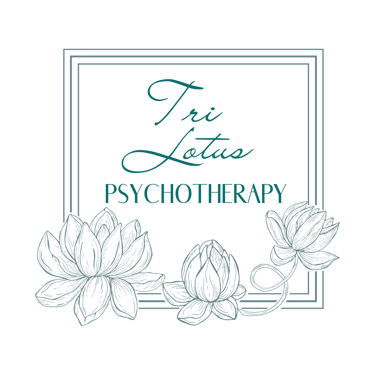NOW ACCEPTING NEW CLIENTS: In-Person in Calgary & Online across Alberta Book a Free 20min Introductory Call! CLIENT LOGIN
Doomscrolling & Anxiety: How Constant Bad News Impacts Your Nervous System
With the current heaviness of the world, it's easy to turn to doomscrolling to ease anxiety and activate common humanity. This blog post explores the relationship between anxiety and doomscrolling and practical tips to cope.
ANXIETY RELIEF
Tri Lotus Psychotherapy
11/3/20253 min read


Doomscrolling & Anxiety: How Constant Bad News Impacts Your Nervous System
In a world overflowing with information, it can feel impossible to look away. Many of us start by checking the news “for a minute” and find ourselves scrolling for an hour, absorbing story after story of tragedy, conflict, and uncertainty. This habit, known as doomscrolling, can quietly heighten anxiety and dysregulate our nervous system.
As Calgary therapists, we often hear clients say they feel wired but tired, mentally exhausted yet unable to stop refreshing their feeds. Let’s unpack why this happens and how to reclaim a sense of calm.
What is Anxiety?
Anxiety is a natural response to perceived threats. It alerts our body to pay attention and prepare for action; our heart races, our muscles tense, and our thoughts start scanning for danger. When anxiety becomes constant, our nervous system stays on high alert, even when we’re safe. Chronic stress and fear-based thinking can then lead to fatigue, irritability, difficulty focusing, and more.
What Is Doomscrolling?
Doomscrolling refers to compulsively scrolling through negative news or distressing content online. It often starts with good intentions, wanting to “stay informed”, but ends with feeling overwhelmed and hopeless.
Today’s news cycle can feel particularly heavy. Global crises, political divisiveness, violence, and climate anxiety dominate headlines. It’s understandable that we want to make sense of it all, but our nervous system isn’t built to process this constant flood of distressing information.
Why Do We Doomscroll?
On a psychological level, doomscrolling offers the illusion of control. When the world feels chaotic, our brain tells us, “If I just know more, maybe I can protect myself.” Unfortunately, the opposite is true. The more we consume negative information, the more anxious and helpless we feel.
Research suggests that doomscrolling triggers the same dopamine feedback loop as other compulsive behaviours. Each time we encounter new information, our brain releases a small dose of dopamine, a feel-good chemical that rewards curiosity. This creates a cycle: we feel anxious, seek information for relief, find more upsetting content, and repeat. Seeking information can be a way to try to avoid the anxiety that we're feeling. However, the more we avoid, the more anxious we'll feel in the long run because we aren't proving to our brain that we can cope with the anxiety.
We also tend to look for stories that confirm how we already feel. When the world seems bleak, our attention naturally gravitates toward more bad news, reinforcing our fear.
How Doomscrolling Impacts the Nervous System?
Constant exposure to distressing media activates the body’s fight-or-flight response. Heart rate and cortisol levels rise, muscles stay tense, and the mind remains hyper-vigilant. Over time, this chronic activation can lead to:
Heightened anxiety or panic attacks
Poor sleep and irritability
Difficulty concentrating
Emotional numbness or hopelessness
Our nervous system needs balance, moments of calm, safety, and positive engagement, to regulate effectively.
How to Stop Doomscrolling Anxiety: Practical Tips
Notice the urge. When you feel pulled to check the news again, pause and name what’s happening: “I’m feeling anxious.” Try adding compassion: “Many people feel this way right now, I don’t need to make it worse by scrolling.”
Ask yourself: Will scrolling actually help me right now? Most of the time, the answer is no.
Look for positive evidence: Challenge your brain’s negativity bias, seek out stories of kindness, recovery, and innovation.
Ground in the present: Tune into your five senses. What can you see, hear, smell, touch, and taste right now?
Breathe intentionally: Try the box-breathing method: inhale for 4, hold for 4, exhale for 4, hold for 4 - repeat four times.
Reach out: Talk with a friend or loved one about your feelings, or simply connect about something joyful.
Move your body: Exercise releases tension and helps reset your nervous system.
Common Questions
Does doomscrolling cause anxiety?
Short answer: yes, it can. Constant negative news keeps the nervous system on high alert, increasing worry, tension, and even panic. The good news: with boundaries, grounding, and support, you can reduce the impact.
What triggers the urge to doomscroll?
The urge often shows up when we’re feeling anxious, uncertain, or out of control. Our brain looks for more information to reduce discomfort, believing that knowing more will make us safer. In reality, constant checking fuels anxiety instead of calming it. Awareness and grounding practices can help interrupt that cycle.
How can therapy help with doomscrolling anxiety?
Therapy can help you understand your anxiety triggers, build emotional regulation skills, and develop healthier digital habits. Working with a Calgary therapist can also help you reconnect with your body, practice mindfulness, and replace doomscrolling with coping tools that genuinely soothe your nervous system.
Finding Support
If you notice doomscrolling is taking a toll on your mental health, you don’t have to manage it alone. Anxiety therapy Calgary can help you build awareness of triggers, strengthen emotional regulation, and find healthier coping habits.
At Tri Lotus Psychotherapy in Calgary, our team of compassionate therapists offers personalized anxiety therapy to help you feel grounded, calm, and connected again. If you’ve been wondering “What triggers the urge to doomscroll?” or “How do I stop doomscrolling anxiety?”, therapy can be the first step toward relief.
Looking for therapy Calgary? Book a free consult with one of our Calgary Counsellors at Tri Lotus Psychotherapy.
Let's Connect
Please fill out the form to request an initial appointment
or complimentary introductory call
Contact
hello@trilotustherapy.com
Clinic Hours
Monday: 5:00pm to 8:00pm
Tuesday: 1:00pm to 8:00pm
Wednesday: 8:00am to 8:00pm
Thursday: 8:00am to 8:00pm
Friday: 11:30am to 4:30pm
Saturday: 9:00am to 3:00pm
Copyright © 2025 by Tri Lotus Psychotherapy - All Rights Reserved


Land Acknowledgment: I gratefully acknowledge and honour that where I live, work and play is within the traditional territories of the people of the Treaty 7 region in Southern Alberta, which includes the Blackfoot Confederacy (comprising the Siksika, Piikani, and Kainai First Nations) as well as the Tsuut’ina First Nation, and the Stoney Nakoda (including the Chiniki, Bearspaw, and Wesley First Nations); and Métis Nation of Alberta, Region 3. The traditional Blackfoot name of this place is “Mohkinstsis”, which is also known now as Calgary.

